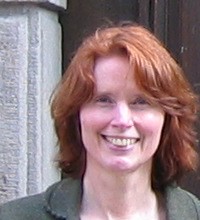I didn't update this right after class - and then I forgot . . . it is always OK to send me an email to remind me.
IN class you wrote listed sensory impressions that connected to memories - smells, physical sensations, tastes - the dark senses, and after we shared some of our evocative experiences, you did a little writing to map out some ideas, experiences you could connect to that sensory memory.
The rest of class was devoted to discussion of Montaigne and Orwell. We listed the features we have identified as belonging to CNF and rated the two readings - to get an idea for how close a fit they were for the current definition. Montaigne did not use features of "fiction" nor did he develop as much reflective exploration of self or recurring, circling ever deeper questioning as we expect in CNF - however - for an essay written more than 400 years ago - the sensibility was remarkably modern. Orwell was a closer fit, but again was less self conscious and more direct and less literary (though he was clearly working with a central metaphor) than some of the other CNF essays we have read. It seems readers came to these texts - especially Montaigne - with different expectations - expectations that reflected their time.
Monday we will be talking/writing about segmented essays and we will use Mimi Schwartz' "My Father Always Said" as an example. For those of you who do not have a copy, there are copies available in my mailbox in 301E. For Blog 4, work through the questions on the calendar: "What is the overall focus of this essay? What is the focus of each section? How does Schwartz use the gaps between sections?" I am looking for you to start thinking about how putting two "sections" next to each other works to make a larger meaning.
I will be reading your blogs over the weekend - and will send you an email, probably Sunday, with my response for posts 2 & 3. See you Monday.
Adrift Film Gratuit A Voir
4 years ago

No comments:
Post a Comment